Over 20 VPN sites have been affected
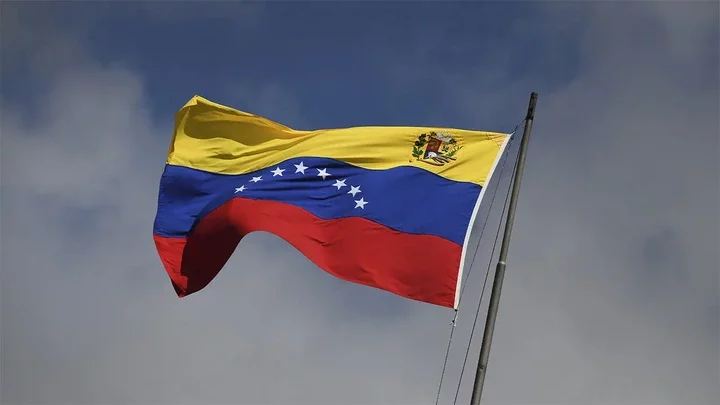
Over 20 VPN websites, including some of the best VPNs, have reportedly been banned in Venezuela.
Online rights group Ve Sin Filtro reported on 9 January 2025 a list of blocked VPN websites, which included NordVPN, Proton VPN, Surfshark, and ExpressVPN. The group has also reported that the Tor Browser and over 30 DNS services are also impacted.
These blocks appear to be on the orders of Venezuela's telecommunications regulator, CONATEL, and come days after President Nicolás Maduro ordered a ban on TikTok.
Popular VPNs blocked
21 VPN providers appear to have had their websites blocked. According to Ve Sin Filtro, these are all the affected providers:
Betternet
Browsec
CyberGhost VPN
ExpressVPN
Hola VPN
Hotspot Shield
IPVanish
iTop VPN
NordVPN
PandaVPN Pro
Proton VPN
Psiphon
PureVPN
Speedify
Surfshark
TunnelBear VPN
Urban VPN Proxy
VPN Brave
VPN Super Unlimited Proxy
Windscribe
ZoogVPN
We have approached a number of these VPN providers to clarify the situation, with some services operating as expected despite the reported blocks.
Lauren Hendry Parsons, Director, Communications & Advocacy at ExpressVPN said: "ExpressVPN is operating as expected in Venezuela. Our ExpressVPN apps are still available via the App Store and Google Play Store, and our service in Venezuela is experiencing no interruptions."
"Today, despite the reported blocks, we've already seen a significant increase in web traffic from Venezuela to ExpressVPN.com. ExpressVPN consistently sees a spike in interest following attempts to limit internet access. Ultimately, these spikes underline a broader truth: when digital freedoms are at risk, people take action to preserve their rights."
The Proton VPN Observatory, run by the team behind Proton VPN, reported a 350% increase in VPN usage in Venezuela which began on 7 January 2025. However, it has now been reported that this increase is now at 1,600%.
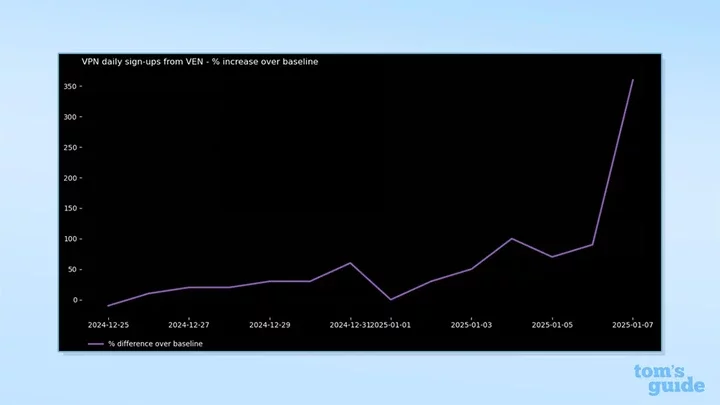
Surfshark also appears to still be working in Venezuela. Surfshark's VPN Product Manager, Justas Pukys, said: "We're currently investigating whether Surfshark's website is blocked in Venezuela. However, we can confirm Surfshark's services remain accessible in the country.
Attempts to block VPNs are typically a concerning effort to restrict users' digital rights. Venezuela has a history of attempting to limit digital freedom. According to Surfshark's Internet Shutdown Tracker, Venezuela leads the Americas in internet restrictions. In the past, Venezuela has implemented 36 internet restrictions, with the majority (33) occurring in 2019 during the presidential crisis, temporarily blocking social media platforms or internet access altogether."
A NordVPN spokesperson acknowledged the reports of restrictions but told Tom's Guide "yesterday's traffic to our website coming from Venezuela was 3-4 times bigger compared to usual traffic, which suggests NordVPN website might still be available at least for some people."
Private Internet Access (PIA) does not feature on the list of VPN providers and Jack Buckley, Privacy Advocate at PIA said: "PIA is working and available as usual."
"PIA does not feature on the list of impacted VPN websites that has been shared, and our investigation currently shows that the PIA website is still accessible to the people of Venezuela as normal."
"That said, even though we are not directly affected by this issue and the data is still coming in, we are seeing the impact of Venezuela's blocking efforts."
"While the full figures are not yet available, PIA is already seeing a 270% increase in website traffic from Venezuela at this early stage."
Impact not limited to VPNs
VPNs sites are not the only ones to face restrictions, social media app TikTok has also suffered.
NetBlocks reported issues with TikTok on 8 January 2025, following a pattern of daily multi-hour restrictions. It is believed that the measure relates to TikTok's failure to appoint a local representative following an eight-day deadline ordered by Venezuela's Supreme Court.
The AP reported Venezuela's Supreme Court fined TikTok $10 million at the end of December 2024 for not implementing measures to prevent viral video challenges. It was argued these challenges resulted in the deaths of three Venezuelan children and the fine and demand for local representatives was issued as a result.
Banning orders are not uncommon in Venezuela, with X (formerly Twitter) temporarily banned back in August 2024 and multiple reports of website banning were reported during the country's controversial summer 2024 elections. During this period, the Proton VPN Observatory saw VPN usage increase by an enormous 51,000% above baseline.
In addition to TikTok and VPN websites, there have been a handful of reports concerning the PlayStation Network (PSN). Users tweeting on X have claimed they have not been able to access the service for two days and are questioning whether it has also been subject to a block.
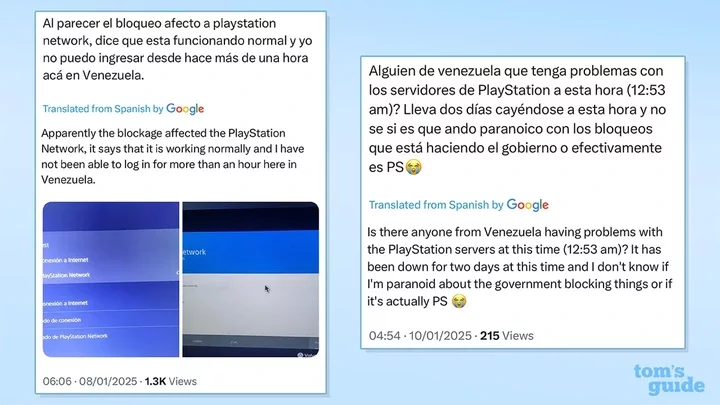
The service allows PlayStation users to game online and its chat features can be used as a backup communication tool during periods of internet suppression. These outages may be limited and not widespread, and it isn't known whether they are intentional or an accidental result of wider DNS blocks.
We test and review VPN services in the context of legal recreational uses. For example: 1. Accessing a service from another country (subject to the terms and conditions of that service). 2. Protecting your online security and strengthening your online privacy when abroad. We do not support or condone the illegal or malicious use of VPN services. Consuming pirated content that is paid-for is neither endorsed nor approved by Future Publishing.


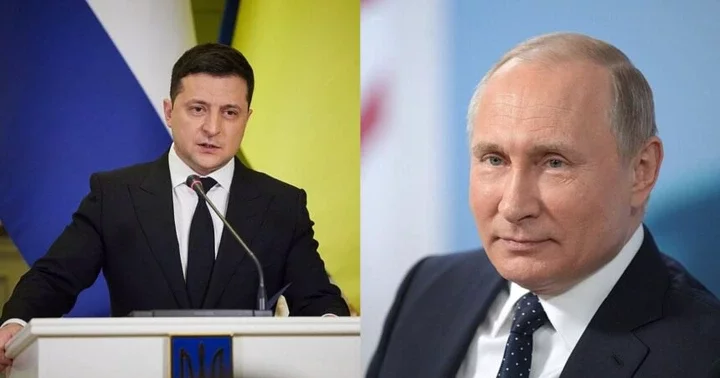
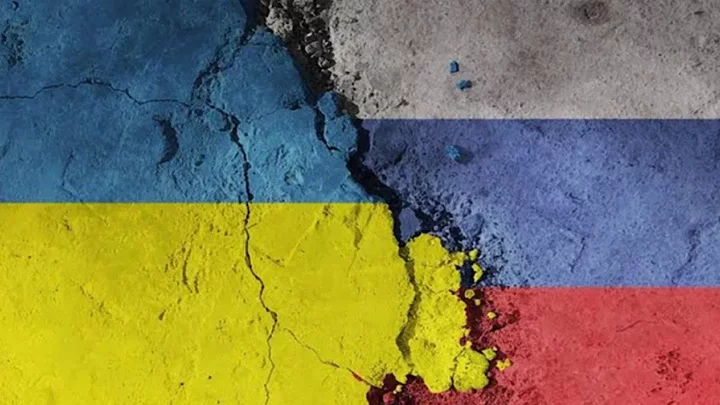


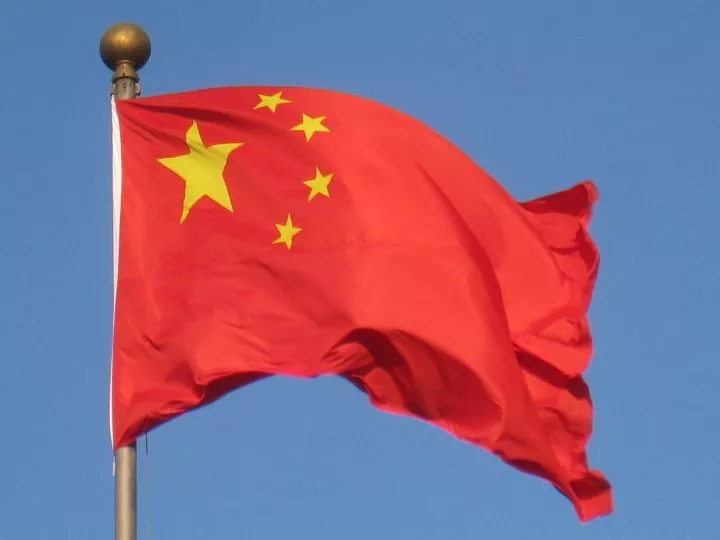




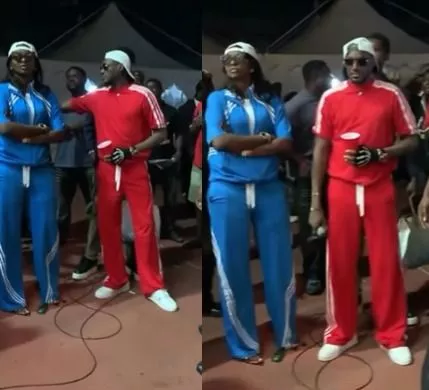




Comments